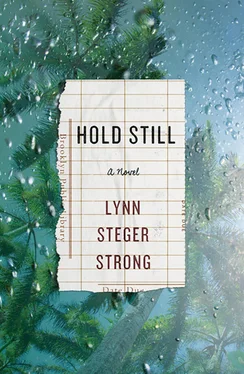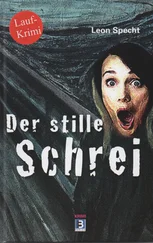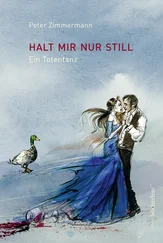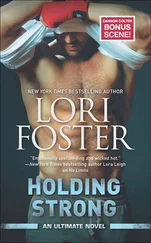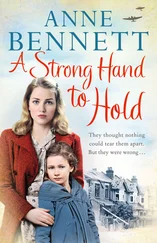Maya smiles at Laura, shakes her head, and looks down at her hands folded on her desk.
“I have some I wish came to office hours less.”
“Oh, Christ, Maya! Tell me! Just one. Tell me one.”
Laura leans forward farther and her shirt falls down to show the first few inches of her cleavage. The skin across her breasts folds, then quivers. Laura will be fifty-three this year, five years older than her friend. Maya wonders how either of them has managed to let herself become so very middle-aged.
“Oh, God,” says Maya, sitting back in her chair, “Alexandra.” She breathes out as she says it. Both she and Laura laugh. “She did her undergrad at Brown and thinks she’s much brighter than she is.”
“Please,” says Laura. “Please go on.”
“She keeps raising her hand and telling us stories about the deconstructionists. She had a problem with the shifts in point of view in To the Lighthouse .”
Laura laughs and puts her feet up on Maya’s desk.
“Oh, they all have problems. They have problems with anyone who makes them work or think.”
“That’s not fair,” says Maya. “Plenty of them think quite well.” The truth is Maya loves the lot of them. She loves their energy, their brains. Laura does as well. They’re both the sort to stay after class for students with questions, to take on extra advisees, to answer frantic emails late at night.
“Boof,” says Laura. “Plenty.” She runs her hand up through her hair. “Some.”
“Enough to keep you coming back.”
“Money is what keeps me coming back,” Laura says, then shrugs. This isn’t true either. There’s money that comes from somewhere, whether it’s the ex-husband Maya knows was present briefly, or the family out in the Midwest that Laura almost never talks about. But she lives in a full-floor apartment close to campus that no one surviving on just the salary of a French literature professor could afford.
“I’m just a sideshow act to all of them,” says Laura. “The crazy French one.” She sometimes seems to have an accent, but she’s from Minnesota. Though she did spend almost a decade in Paris just after she received her doctorate. “It’s exhausting,” she says. “Putting on the show.”
She stops, her hands palmed at her mouth and her chin rising, angling her head down again and straight toward her friend.
“But then, you’re so earnest all the time,” says Laura, “so fervent . You must be even more exhausted than I am.”
Maya nods, not wanting to answer. They were doing so well too.
Laura pulls her legs off the desk and sidles to the edge of the chair; her hands reach across toward Maya.
“Honey,” she says.
Laura had gone with them. Stephen still didn’t know. Maya had never meant to tell Laura Ellie was pregnant, but she’d been so relieved the minute her friend knew.
El was sixteen: they went to a small brightly colored office on Fifty-ninth Street and Tenth Avenue, where they sat quietly in the too-tightly-packed-in chairs with plastic armrests and waited for their turn. Maya tried to hold Ellie’s hand, but Ellie freed herself of her mom quickly, so Maya had just leaned in very close to her, brushing up against her. There had been an initial screening to which only Maya and Ellie had gone the week before. The day of, Ellie let Maya stay with her as she changed her clothes and was prepped, and then she sent Maya back to sit with Laura, both of them staring at the yellow diamonds spread across the dark blue carpet, waiting for her daughter to return.
After, Laura took them out as if this were all cause for celebration. They shared a bottle of wine among the three of them. No one carded. It felt like the last thing to worry about then.
“I’ve had four,” said Laura. She was forty-nine then and regularly slept with men ten and fifteen years younger. There had been the wedding in Minnesota when she was still an undergrad that had lasted right up till she left for grad school at Yale. Laura had only ever said her husband had been too sweet to stay with past the age of twenty-two.
Maya watched her daughter finger the rim of her wine glass.
“I wouldn’t recommend that many,” Laura said.
Ellie pursed her lips, then sipped from her wine glass. She wore jeans and one of Stephen’s sweaters. She looked twelve years old.
Laura pressed her palms against the corners of the table and leaned in closer to Ellie. “Things stopped working after the last one.” She turned to face Maya. “Uterus like a pinball machine.” She shrugged.
She was quoting someone, and it took Maya a moment to place it. She could tell, though, the way the words seemed wrapped up to keep Laura safe — they weren’t her own.
“Sophie,” Maya said after a moment. Desperate Characters.
Laura smiled and turned back to Ellie. She tipped her head toward Maya. “That’s why your mom’s the best.”
Maya wasn’t sure if this was right. Should they be talking this way, smiling? But what else was there to do?
“You wanted kids?” asked Ellie. Their food was set down before them and only Laura reached for her silverware. Maya fingered the napkin on her lap.
“Who knows?” said Laura. “I’d probably completely fuck it up.”
Maya laughed then, though she hadn’t meant to.
Ellie shook her head. “You’d be really good.” She sat up a bit straighter in her chair and picked up a piece of asparagus with her thumb and forefinger, taking a small bite, then setting it back down.
Laura smiled. She twirled pasta around her fork and swallowed seemingly without chewing. “Thanks, El. You’re lying, but you’re sweet.”
Ellie tore at a piece of bread and rolled it with her fingers till it was small, smooth, and round, then dropped it. “No, I mean, you’re a little crazy. But I think that’s good. Less pressure on the kids.”
Maya was trying to figure out what this meant about her as a mother. She was either crazy or not very good. Whatever she was, Ellie had told her, thankfully, about the pregnancy. Even if it had taken Maya begging. Even if El seemed to have been stoned when she’d finally come to Maya three nights before, Stephen out of town. She’d cried, crawling into Maya’s bed, only mumbling the lot of it, six tests to be sure and no mention of the father; after Maya had begun to cry as well.
“Well, thanks, lady,” said Laura. “I think, though, my real talent is as the crazy aunt/friend.”
“You’re incredible at that,” Ellie said.
Laura’s teeth shone, stained slightly by the dark red of the wine, and she tipped her glass toward Ellie and then toward Maya. Maya reached across the table and tried to take hold of her daughter’s shoulder, but Ellie leaned out of her reach, fisted her wine glass with a tip toward Laura’s, and drank.
Maya had felt almost smug walking back to Brooklyn with her daughter, over the bridge, and through Brooklyn Heights and Boerum Hill. It was awful, sure. But they’d made it to the other side. She’d gotten her a prescription for birth control and they’d talked about how irresponsible Ellie had been. But it hadn’t felt like the time for scolding. She wanted to be sure Ellie still felt Maya was someone she could trust.
She’d thought then that they were coming out of something, that that moment had represented a sort of end. Crisis had come and Ellie had gone to her. She felt shaken by it, terrified. But also, she felt relief. This was the great awful thing she’d been afraid of happening to her daughter: It had happened. She had come to Maya. It could all start to get better after this.
“You’re going to be okay,” Maya said to Ellie.
And Ellie smiled, a wool hat pulled down over her hair, her great big eyes peeking out from underneath. “I know, Ma,” she said.
Читать дальше
